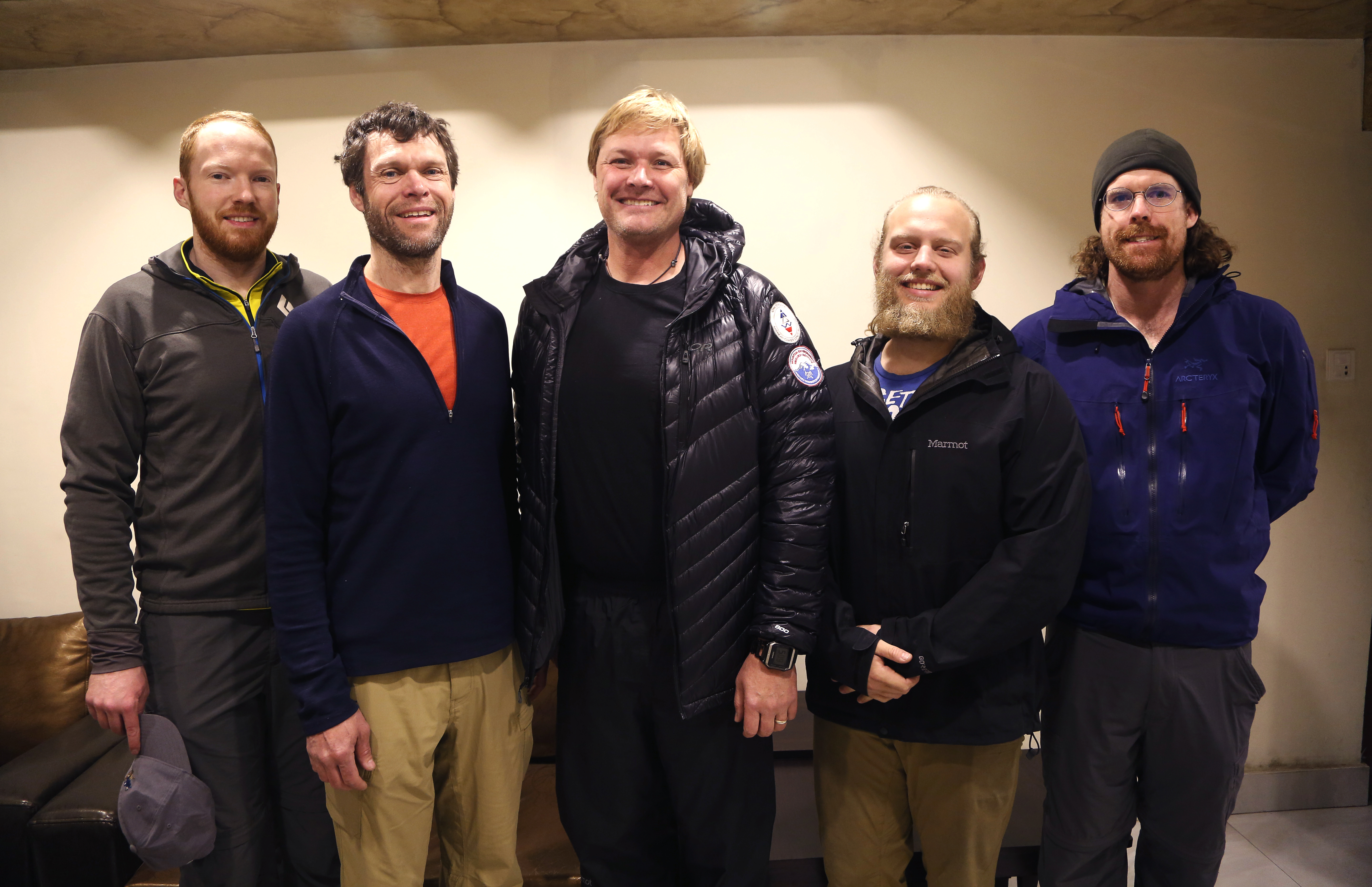John All, director of Western’s Mountain Environments Research Institute, is leading an international team of students and researchers on an expedition to Mount Everest and its neighboring peak, Lhotse, this spring to research the impact of global climate change on the Himalayas.
The group headed to Nepal in late March and includes a pair of WWU graduate students, Colin Schmidt and Morgan Scott, ’16, B.A., Environmental Studies, and Biology Professor Eric DeChaine, as well as other researchers: Sébastien Lavergne from the Laboratoire d’Ecologie Alpine at the Université Grenoble Alpes, France, Chris Dunn, a graduate student from the University of Colorado, and Kamal Humagain, assistant professor at the State University of New York at Potsdam. After collecting data in the surrounding valleys, they pushed higher on the mountain slopes of Everest and Lhotse to increase their altitude tolerance with the goal of summiting the peaks at the end of May.
The expedition is covered online by Outside magazine and will be part of World Clean Up Day, to promote litter reduction around the world.
All and the researchers will be looking into how black carbon deposition—essentially soot and particulate air pollution generally referred to as Light Absorbing Particles, or LAPS – increase the rates at which the Himalaya’s snow and glaciers are melting. LAPs absorb solar radiation, which is converted to heat energy that is conducted into the surrounding snow and ice, leading to melting.
The expedition will also be looking to see how deforestation and the loss of shrub cover in Nepal’s Sagarmatha National Park is impacting the region. Schmidt’s research is focused on soil erosion modeling, while Scott will be looking at how climate change and tourism affect the community development of local Sherpa communities.
Follow along on the expedition at climberscience.org
